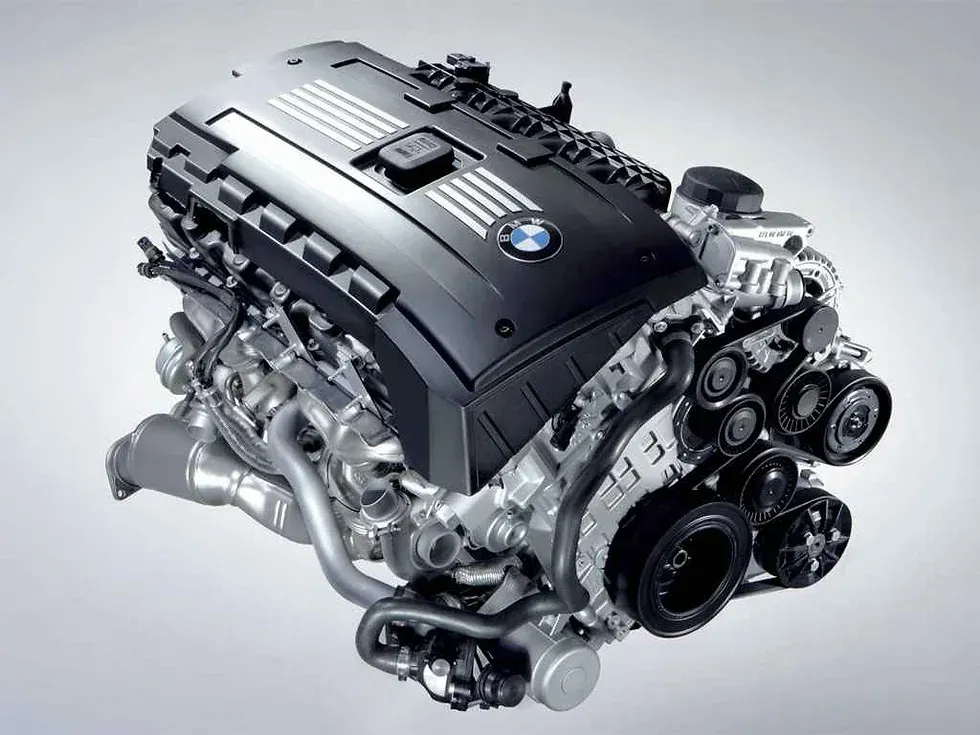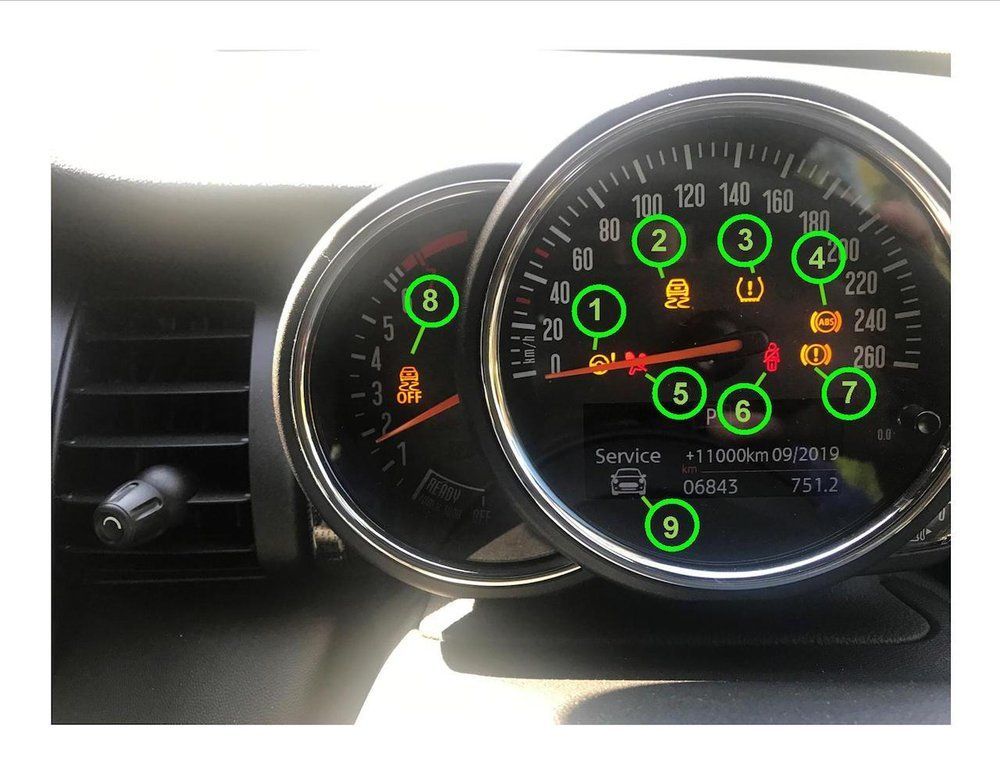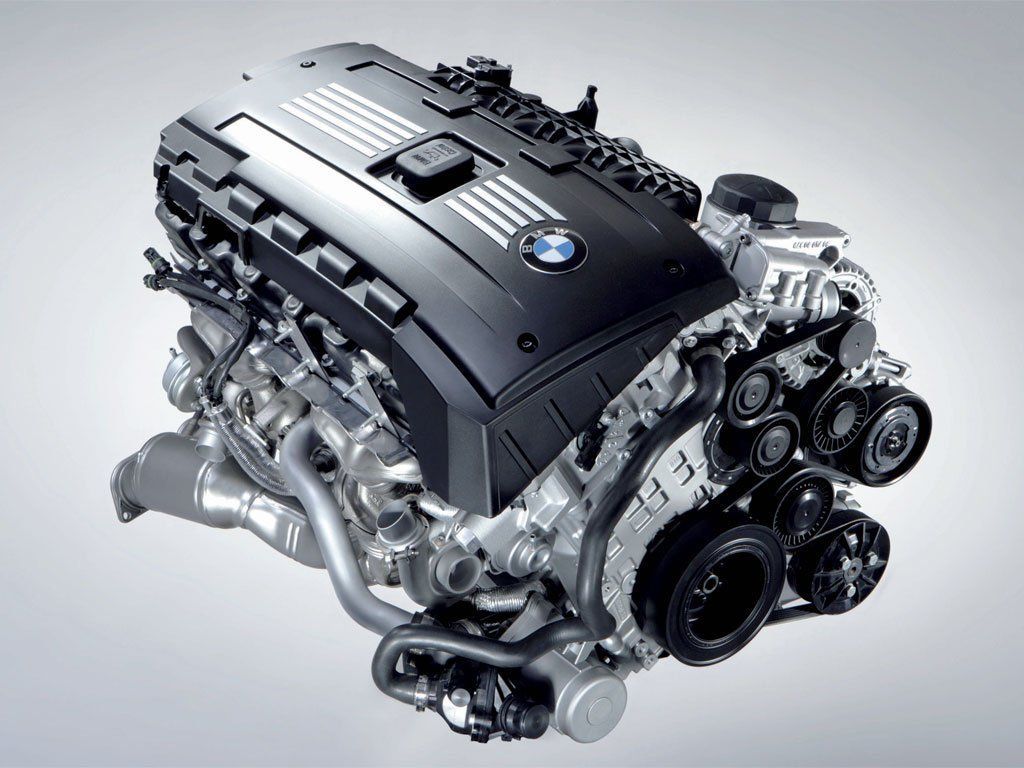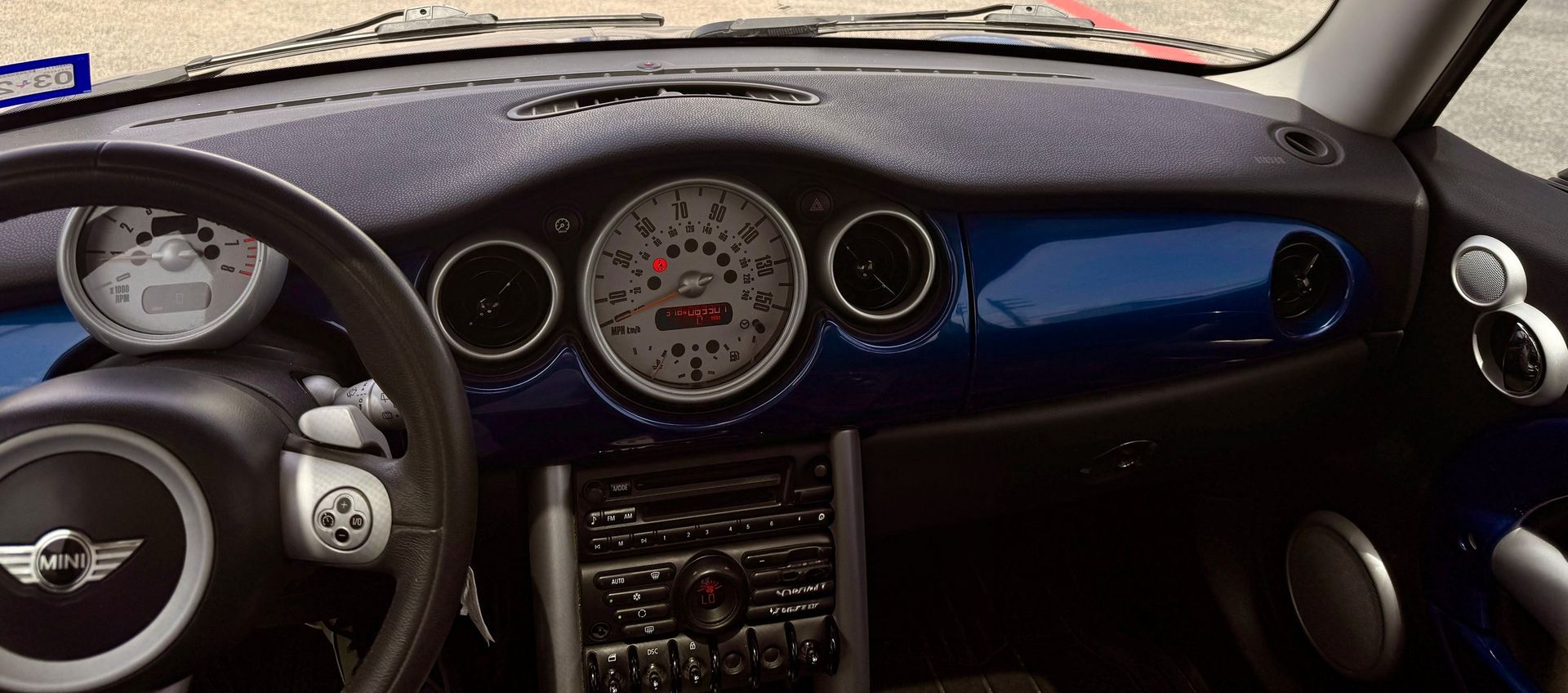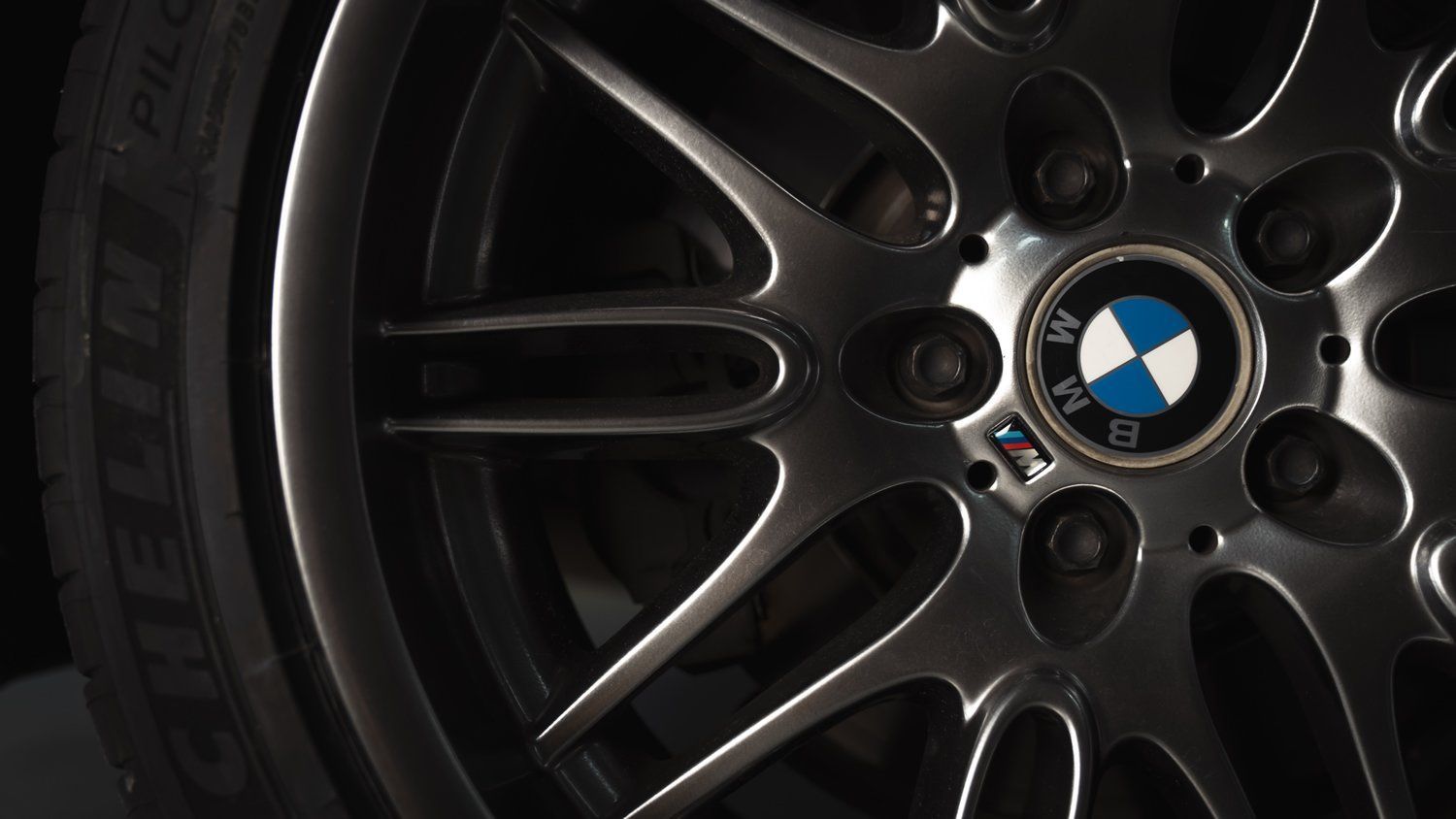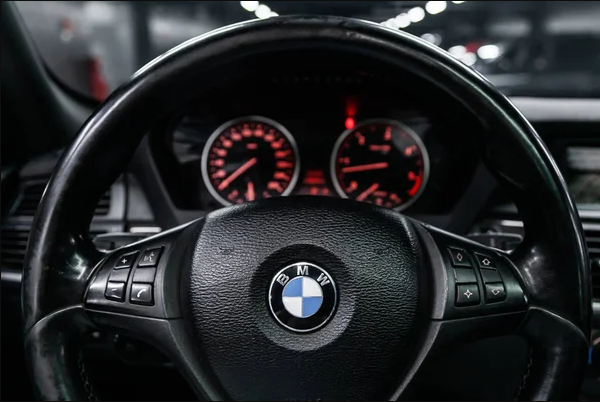Mon - Fri 8:00am - 6:00pm
Give us a call:
The N20 BMW Engine: What Is It, Why People Love It, and the Main Issues
C Deselle • December 20, 2024
The BMW N20 engine, a turbocharged four-cylinder powerplant, marked a significant shift in BMW’s approach to performance and efficiency. Introduced in 2011, the N20 was designed to replace the naturally aspirated inline-six engines that had long been a hallmark of BMW’s lineup. While this move was met with some initial skepticism from enthusiasts, the N20 quickly proved itself as a capable engine, delivering impressive power, torque, and fuel efficiency in a smaller, lighter package.
What is the N20 BMW Engine?
History and Development
The N20 engine was introduced in 2011 as part of BMW’s move toward downsized, turbocharged engines that offered better fuel efficiency without compromising performance. The N20 replaced the naturally aspirated N52 and N53 inline-six engines in many BMW models, marking a significant shift in the brand’s engineering philosophy.
Technical Specifications and Key Features
The N20 engine is a 2.0-liter turbocharged inline-four that produces between 180 to 240 horsepower and 200 to 260 lb-ft of torque, depending on the application. It features an all-aluminum construction, making it lightweight and contributing to better weight distribution in the vehicles it powers. The N20’s compact size also allowed BMW to offer a more balanced and agile driving experience.
Key features of the N20 engine include:
TwinScroll Turbocharger: The N20 uses a TwinScroll turbocharger, which provides quicker spool-up times and more responsive power delivery. This design helps reduce turbo lag and offers a smoother driving experience.
Valvetronic: BMW’s variable valve timing system, Valvetronic, optimizes engine performance and efficiency by adjusting the lift of the intake valves.
Double VANOS: The N20 features BMW’s Double VANOS system, which adjusts the timing of the intake and exhaust valves for improved torque and fuel efficiency across the entire RPM range.
Direct Injection: The engine uses direct fuel injection, which improves combustion efficiency, resulting in more power and better fuel economy.
All-Aluminum Construction: The lightweight aluminum block and head contribute to the engine’s efficiency and help reduce the overall weight of the vehicle.
Applications: Which BMW Models Featured the N20 Engine?
The N20 engine was used in a variety of BMW models, spanning several different vehicle segments. Some of the most popular models that featured the N20 engine include:
F30/F31 3 Series: The N20 powered the 320i and 328i, making these models a popular choice for those seeking a balance of performance and efficiency.
F10 5 Series: The 528i was equipped with the N20 engine, offering a more fuel-efficient alternative to the six-cylinder models without sacrificing too much performance.
F25 X3 and F26 X4: The N20 engine was also used in BMW’s compact SUVs, the X3 and X4, where it provided ample power for both urban driving and highway cruising.
E89 Z4: In the Z4 sDrive28i, the N20 delivered a sporty and engaging driving experience in BMW’s popular roadster.
F22 2 Series: The 228i was another model that benefited from the N20’s performance and efficiency, making it a favorite among enthusiasts.
Why Do People Love the N20?
Balanced Performance and Efficiency
Responsive Power Delivery
Tuning Potential
Advanced Technology and Engineering
Common Issues with the N20 Engine
Timing Chain and Guides Failure
One of the most significant and well-known issues with the N20 engine is the premature failure of the timing chain and its guides. The timing chain is responsible for synchronizing the rotation of the crankshaft and camshaft, ensuring that the engine’s valves open and close at the correct times. In the N20, the timing chain and its plastic guides have been known to wear out prematurely, leading to a rattling noise and, in severe cases, catastrophic engine failure if the chain breaks or jumps timing.
Oil Filter Housing Gasket Leaks
Oil filter housing gasket leaks are another common issue with the N20 engine. The gasket that seals the oil filter housing to the engine block can degrade over time, leading to oil leaks. These leaks can cause a loss of engine oil, which, if not addressed, can lead to low oil levels and potential engine damage. Additionally, oil leaks from the housing can drip onto the serpentine belt, causing it to slip or fail.
Fortunately, replacing the oil filter housing gasket is a relatively straightforward repair, but it’s an issue that N20 owners should keep an eye out for, especially as the engine ages.
Coolant Pump and Thermostat Failure
The N20 engine’s electric coolant pump and thermostat are known to be prone to failure, typically around 60,000 to 80,000 miles. When the coolant pump fails, it can cause the engine to overheat, potentially leading to serious damage if not addressed promptly. The thermostat, which regulates the engine’s operating temperature, is also known to fail, leading to either overheating or the engine running too cool, both of which can cause performance issues.
Turbocharger Wastegate Rattle
Similar to the N54 engine, the N20’s turbocharger wastegate can develop a rattle over time. This occurs when the wastegate actuator becomes loose or worn, leading to a rattling noise, especially at low RPMs. In severe cases, the wastegate rattle can affect the turbocharger’s performance, leading to boost pressure issues and a reduction in power.
VANOS Solenoid Issues
The N20 engine’s VANOS system, which adjusts the timing of the intake and exhaust valves, relies on solenoids to function properly. Over time, these solenoids can become clogged with debris or fail, leading to issues with the VANOS system. Symptoms of VANOS solenoid problems include rough idling, poor fuel economy, and a decrease in performance.
Carbon Buildup on Intake Valves
As with many direct-injection engines, the N20 is prone to carbon buildup on the intake valves. Because fuel is injected directly into the combustion chamber rather than the intake ports, the valves are not cleaned by the fuel, allowing carbon deposits to accumulate over time. This buildup can restrict airflow, leading to a loss of power, rough idling, and poor fuel economy.
Maintaining the N20: Tips for Longevity and Performance
Proper maintenance is key to ensuring the longevity and performance of the N20 engine. Here are some tips for keeping your N20 running at its best:
Regular Oil Changes: Use high-quality synthetic oil and change it at the recommended intervals to prevent sludge buildup and ensure proper lubrication.
Monitor for Leaks: Keep an eye out for oil and coolant leaks, especially from the oil filter housing and the coolant pump. Address any leaks promptly to avoid more serious issues.
Inspect the Timing Chain: If your vehicle falls within the affected range, have the timing chain and guides inspected regularly, and replace them if any signs of wear are detected.
Maintain the Cooling System: Regularly check the coolant level and inspect the coolant pump and thermostat for signs of wear. Replacing these components as part of preventative maintenance can help avoid overheating issues.
Perform Walnut Blasting: Schedule walnut blasting at regular intervals to keep the intake valves clean and maintain optimal engine performance.
The BMW N20 engine represents a significant evolution in BMW’s approach to performance and efficiency. Its combination of turbocharged power, advanced technology, and lightweight design has made it a popular choice among enthusiasts who appreciate a balanced driving experience. While the N20 does come with its share of potential issues, proper maintenance and care can help ensure that it delivers years of reliable performance.
For those who value both performance and efficiency, the N20 is a testament to BMW’s ability to innovate without sacrificing the driving dynamics that the brand is known for. Whether you’re looking to extract more power through tuning or simply want to enjoy the responsive and engaging nature of the N20, this engine offers a unique and rewarding ownership experience. With the right care, and a TMJ Bimmers’ curated maintenance plan in place for your vehicle, your N20 can provide a thrilling driving experience while maintaining the practicality and efficiency that modern drivers demand.
For BMW enthusiasts, the N20 offers a compelling mix of performance, technology, and efficiency. It’s an engine that embodies the brand’s commitment to innovation while staying true to its roots in driving dynamics. However, like any high-performance engine, the N20 comes with its own set of challenges and potential issues. In this blog, we’ll take an in-depth look at what makes the N20 engine special, why it’s loved by many, and what common problems owners should be aware of.
History and Development
The N20 engine was introduced in 2011 as part of BMW’s move toward downsized, turbocharged engines that offered better fuel efficiency without compromising performance. The N20 replaced the naturally aspirated N52 and N53 inline-six engines in many BMW models, marking a significant shift in the brand’s engineering philosophy.
The development of the N20 was driven by the need to meet stricter emissions regulations while maintaining the driving dynamics that BMW is known for. Turbocharging allowed BMW to extract more power from a smaller displacement engine, while also improving fuel efficiency and reducing emissions. The N20 was also one of the first BMW engines to incorporate technologies like Valvetronic and Double VANOS, which further enhanced its performance and efficiency.
The N20 engine is a 2.0-liter turbocharged inline-four that produces between 180 to 240 horsepower and 200 to 260 lb-ft of torque, depending on the application. It features an all-aluminum construction, making it lightweight and contributing to better weight distribution in the vehicles it powers. The N20’s compact size also allowed BMW to offer a more balanced and agile driving experience.
Key features of the N20 engine include:
TwinScroll Turbocharger: The N20 uses a TwinScroll turbocharger, which provides quicker spool-up times and more responsive power delivery. This design helps reduce turbo lag and offers a smoother driving experience.
Valvetronic: BMW’s variable valve timing system, Valvetronic, optimizes engine performance and efficiency by adjusting the lift of the intake valves.
Double VANOS: The N20 features BMW’s Double VANOS system, which adjusts the timing of the intake and exhaust valves for improved torque and fuel efficiency across the entire RPM range.
Direct Injection: The engine uses direct fuel injection, which improves combustion efficiency, resulting in more power and better fuel economy.
All-Aluminum Construction: The lightweight aluminum block and head contribute to the engine’s efficiency and help reduce the overall weight of the vehicle.
Applications: Which BMW Models Featured the N20 Engine?
The N20 engine was used in a variety of BMW models, spanning several different vehicle segments. Some of the most popular models that featured the N20 engine include:
F30/F31 3 Series: The N20 powered the 320i and 328i, making these models a popular choice for those seeking a balance of performance and efficiency.
F10 5 Series: The 528i was equipped with the N20 engine, offering a more fuel-efficient alternative to the six-cylinder models without sacrificing too much performance.
F25 X3 and F26 X4: The N20 engine was also used in BMW’s compact SUVs, the X3 and X4, where it provided ample power for both urban driving and highway cruising.
E89 Z4: In the Z4 sDrive28i, the N20 delivered a sporty and engaging driving experience in BMW’s popular roadster.
F22 2 Series: The 228i was another model that benefited from the N20’s performance and efficiency, making it a favorite among enthusiasts.
Why Do People Love the N20?
Balanced Performance and Efficiency
One of the main reasons enthusiasts appreciate the N20 engine is its ability to deliver a strong balance between performance and efficiency. The TwinScroll turbocharger ensures that power is readily available, providing a thrilling driving experience, while the engine’s smaller displacement and advanced technologies like Valvetronic and Double VANOS help keep fuel consumption in check. This balance makes the N20 an ideal choice for drivers who want the best of both worlds: spirited driving and reasonable fuel economy.
The N20’s use of a TwinScroll turbocharger helps to reduce turbo lag, providing a more immediate and linear power delivery compared to single-scroll turbochargers. This makes the engine feel more responsive, especially in the lower RPM range, where turbocharged engines typically suffer from lag. The result is a more engaging and enjoyable driving experience, whether you’re navigating city streets or accelerating onto the highway.
Lightweight and Compact Design
The N20’s all-aluminum construction and compact design contribute to better weight distribution and a lower overall vehicle weight, which in turn improves handling and agility. This is particularly evident in models like the F30 3 Series and the F22 2 Series, where the N20’s lightweight design helps create a more balanced and nimble driving experience. Enthusiasts appreciate this aspect of the N20, as it allows for a more connected and dynamic feel behind the wheel.
While the N20 may not have the same level of tuning potential as BMW’s larger engines, it still offers plenty of opportunities for enthusiasts to extract more performance. With basic modifications such as an upgraded intercooler, high-flow downpipe, and ECU tuning, the N20 can produce significantly more power and torque, making it a popular choice for those looking to enhance their vehicle’s performance without going overboard. The engine’s robust design and use of modern technologies also mean that it can handle these upgrades relatively well, and at TMJ Bimmers, we are properly equipped to perform your ECU tuning as well as any of the above mentioned performance modifications to extract more performance out of your N20 engine.
The N20 engine showcases BMW’s commitment to advanced technology and engineering excellence. From the use of a TwinScroll turbocharger to the incorporation of Valvetronic and Double VANOS, the N20 represents a forward-thinking approach to engine design. Enthusiasts who appreciate the technical side of automotive engineering often find the N20 to be an impressive example of how BMW has adapted to changing industry demands while still delivering a high-performance driving experience.
While the N20 engine has many strengths, it’s not without its weaknesses. Like any high-performance engine, it comes with a set of common issues that owners should be aware of. Understanding these potential problems can help enthusiasts maintain their vehicles and avoid more serious issues down the line.
One of the most significant and well-known issues with the N20 engine is the premature failure of the timing chain and its guides. The timing chain is responsible for synchronizing the rotation of the crankshaft and camshaft, ensuring that the engine’s valves open and close at the correct times. In the N20, the timing chain and its plastic guides have been known to wear out prematurely, leading to a rattling noise and, in severe cases, catastrophic engine failure if the chain breaks or jumps timing.
BMW recognized this issue and issued a service bulletin and extended warranty coverage for affected vehicles. However, it remains a major concern for N20 owners, and it’s crucial to address any symptoms of timing chain issues as soon as they arise.
Oil filter housing gasket leaks are another common issue with the N20 engine. The gasket that seals the oil filter housing to the engine block can degrade over time, leading to oil leaks. These leaks can cause a loss of engine oil, which, if not addressed, can lead to low oil levels and potential engine damage. Additionally, oil leaks from the housing can drip onto the serpentine belt, causing it to slip or fail.
Fortunately, replacing the oil filter housing gasket is a relatively straightforward repair, but it’s an issue that N20 owners should keep an eye out for, especially as the engine ages.
Coolant Pump and Thermostat Failure
The N20 engine’s electric coolant pump and thermostat are known to be prone to failure, typically around 60,000 to 80,000 miles. When the coolant pump fails, it can cause the engine to overheat, potentially leading to serious damage if not addressed promptly. The thermostat, which regulates the engine’s operating temperature, is also known to fail, leading to either overheating or the engine running too cool, both of which can cause performance issues.
Regular inspection and maintenance of the cooling system are essential to prevent these problems from escalating. Replacing the coolant pump and thermostat as part of preventative maintenance can help avoid more costly repairs down the road.
Similar to the N54 engine, the N20’s turbocharger wastegate can develop a rattle over time. This occurs when the wastegate actuator becomes loose or worn, leading to a rattling noise, especially at low RPMs. In severe cases, the wastegate rattle can affect the turbocharger’s performance, leading to boost pressure issues and a reduction in power.
While the wastegate rattle is more of an annoyance than a serious issue, it can be indicative of more significant wear in the turbocharger. Some owners choose to upgrade their turbochargers to more durable aftermarket units to address this problem and improve performance at the same time.
The N20 engine’s VANOS system, which adjusts the timing of the intake and exhaust valves, relies on solenoids to function properly. Over time, these solenoids can become clogged with debris or fail, leading to issues with the VANOS system. Symptoms of VANOS solenoid problems include rough idling, poor fuel economy, and a decrease in performance.
Fortunately, cleaning or replacing the VANOS solenoids is a relatively simple task, and doing so can restore the engine’s performance and efficiency.
As with many direct-injection engines, the N20 is prone to carbon buildup on the intake valves. Because fuel is injected directly into the combustion chamber rather than the intake ports, the valves are not cleaned by the fuel, allowing carbon deposits to accumulate over time. This buildup can restrict airflow, leading to a loss of power, rough idling, and poor fuel economy.
Regular walnut blasting, a process that uses crushed walnut shells to clean the intake valves, is recommended to keep the engine running smoothly and maintain performance. BMW recommends performing this service every 50,000 to 70,000 miles, depending on driving conditions.
Proper maintenance is key to ensuring the longevity and performance of the N20 engine. Here are some tips for keeping your N20 running at its best:
Regular Oil Changes: Use high-quality synthetic oil and change it at the recommended intervals to prevent sludge buildup and ensure proper lubrication.
Monitor for Leaks: Keep an eye out for oil and coolant leaks, especially from the oil filter housing and the coolant pump. Address any leaks promptly to avoid more serious issues.
Inspect the Timing Chain: If your vehicle falls within the affected range, have the timing chain and guides inspected regularly, and replace them if any signs of wear are detected.
Maintain the Cooling System: Regularly check the coolant level and inspect the coolant pump and thermostat for signs of wear. Replacing these components as part of preventative maintenance can help avoid overheating issues.
Perform Walnut Blasting: Schedule walnut blasting at regular intervals to keep the intake valves clean and maintain optimal engine performance.
The BMW N20 engine represents a significant evolution in BMW’s approach to performance and efficiency. Its combination of turbocharged power, advanced technology, and lightweight design has made it a popular choice among enthusiasts who appreciate a balanced driving experience. While the N20 does come with its share of potential issues, proper maintenance and care can help ensure that it delivers years of reliable performance.
For those who value both performance and efficiency, the N20 is a testament to BMW’s ability to innovate without sacrificing the driving dynamics that the brand is known for. Whether you’re looking to extract more power through tuning or simply want to enjoy the responsive and engaging nature of the N20, this engine offers a unique and rewarding ownership experience. With the right care, and a TMJ Bimmers’ curated maintenance plan in place for your vehicle, your N20 can provide a thrilling driving experience while maintaining the practicality and efficiency that modern drivers demand.
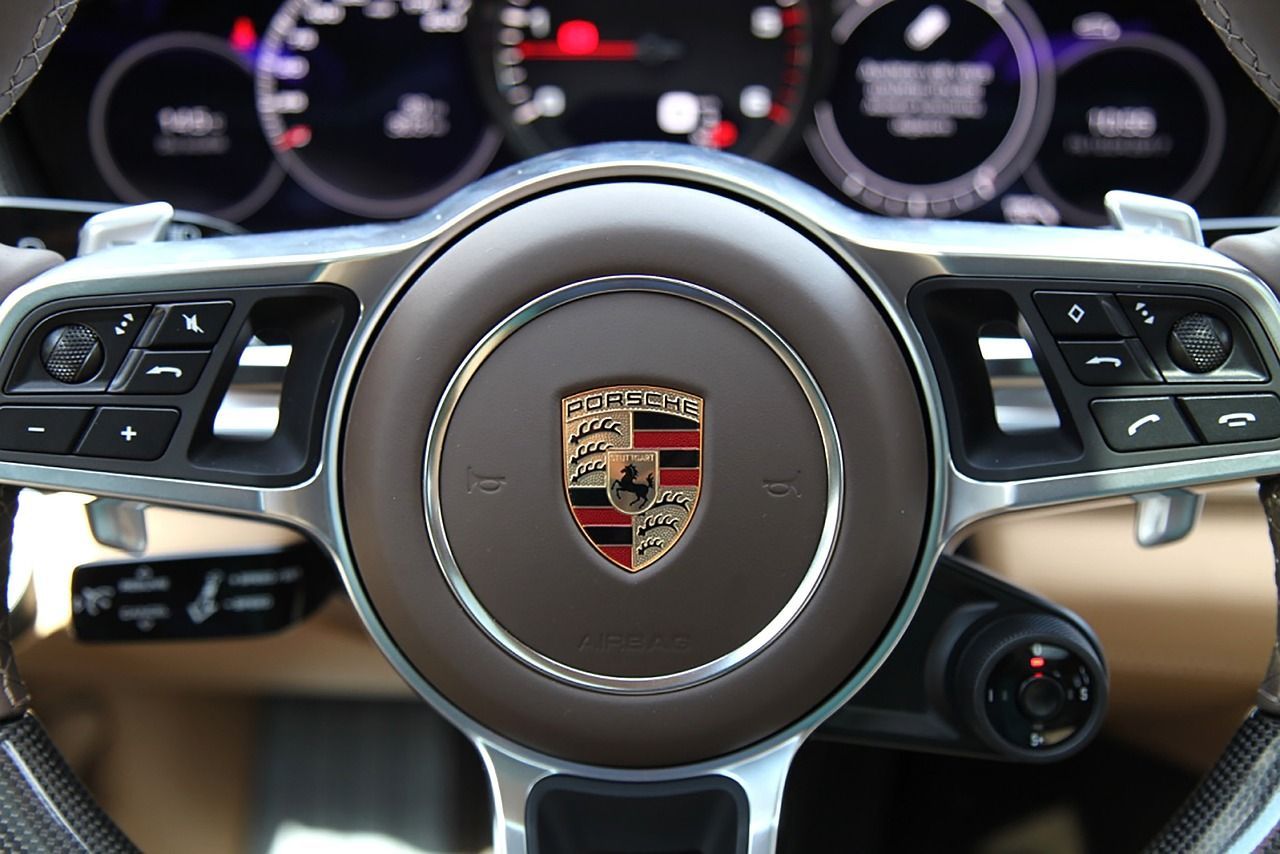
By C Deselle
•
March 28, 2025
As a proud Porsche owner, you know your car is more than just a mode of transportation—it’s a masterpiece of engineering, performance, and luxury. However, like any high-performance vehicle, your Porsche is equipped with a variety of warning lights on the dashboard designed to keep you informed about its health. Understanding these lights is crucial for maintaining your Porsche in peak condition. This guide will walk you through the most common Porsche warning lights, explain what they mean, and provide guidance on the necessary actions to take when they appear. Why Warning Lights Matter Warning lights serve as your Porsche’s way of communicating potential issues, ranging from minor concerns to critical problems requiring immediate attention. These alerts can range from simple reminders, such as a low fuel warning, to serious issues like engine or braking system malfunctions. Ignoring these warnings can lead to costly repairs or even hazardous situations on the road. By understanding these indicators, you can take the appropriate actions to ensure your Porsche continues to run smoothly and efficiently. 1. Check Engine Light (CEL) What It Looks Like: A yellow or amber outline of an engine, sometimes with the word "CHECK." What It Means: This light indicates that the vehicle’s onboard diagnostics system has detected an issue. The cause could range from something minor, like a loose gas cap, to more serious problems, such as engine misfires, faulty oxygen sensors, or catalytic converter issues. What to Do: If the light is steady, schedule a diagnostic check as soon as possible. If it's flashing, it indicates a severe issue that requires immediate attention—pull over and have your Porsche towed to a repair shop to prevent engine damage. 2. Battery Warning Light What It Looks Like: A red battery icon. What It Means: This indicates that your Porsche’s battery is not charging properly, which could be due to a failing alternator, a weak battery, or corroded connections. What to Do: Reduce electrical usage and drive to a service center immediately. If the battery is completely discharged, your Porsche may not restart. 3. Brake Warning Light What It Looks Like: A red circle with an exclamation point inside or the word "BRAKE." What It Means: This could indicate low brake fluid levels, worn brake pads, or an issue with the braking system. What to Do: Check if your parking brake is engaged. If the light remains on, have your brakes inspected immediately at TMJ Bimmers to ensure safety. 4. Oil Pressure Warning Light What It Looks Like: A red oil can symbol with a drip. What It Means: Low oil pressure, which may result from low oil levels, a failing oil pump, or an oil leak. What to Do: Pull over immediately and check the oil level. If adding oil doesn’t resolve the issue, have your Porsche towed to a service center to prevent engine damage. 5. ABS (Anti-lock Braking System) Warning Light What It Looks Like: A yellow or amber circle with the letters "ABS." What It Means: There is an issue with your Porsche’s anti-lock braking system, which helps maintain control during hard braking. What to Do: While regular brakes may still function, have the ABS system inspected as soon as possible to avoid compromised braking performance. 6. Tire Pressure Monitoring System (TPMS) Light What It Looks Like: An exclamation point inside a horseshoe shape. What It Means: One or more tires are underinflated, which can impact handling and fuel efficiency. What to Do: Check tire pressure and inflate to the recommended levels. If the light persists, have the TPMS system checked. 7. Coolant Temperature Warning Light What It Looks Like: A red thermometer symbol. What It Means: Your Porsche's engine is overheating, possibly due to low coolant levels or radiator issues. What to Do: Pull over immediately, turn off the engine, and allow it to cool. Check coolant levels and top off if needed, but seek professional service if the problem persists. 8. Airbag Warning Light What It Looks Like: A person with an airbag in front. What It Means: There is a malfunction in the airbag system, which may prevent airbags from deploying properly in an accident. What to Do: Have the system inspected immediately to ensure safety. 9. Engine Temperature Warning Light What It Looks Like: A red thermometer submerged in liquid. What It Means: The engine is running hotter than normal, often due to low coolant, a failing water pump, or a faulty thermostat. What to Do: Pull over, allow the engine to cool, and check coolant levels. If the light stays on, have the vehicle towed to TMJ Bimmers to avoid potentially catastrophic engine damage. 10. Steering Wheel Warning Light What It Looks Like: A yellow or red steering wheel icon. What It Means: A problem with the power steering system, making steering more difficult. What to Do: Drive cautiously and schedule a service appointment. 11. Transmission Warning Light What It Looks Like: A gear with an exclamation point or the word "TRANS." What It Means: There is a problem with the transmission system, such as low fluid levels or mechanical failure. What to Do: Avoid hard accelerations and schedule a transmission inspection immediately. 12. Fuel Indicator Light What It Looks Like: A yellow gas pump icon. What It Means: Your fuel level is low, usually at 10-15% capacity. What to Do: Refuel as soon as possible to prevent running out and avoid damage to the fuel pump. Why Choose TMJ Porsche Specialists for Diagnostic Testing? While some warning lights may have simple solutions, others require expert diagnosis and repair. Porsches are complex, high-performance vehicles that demand specialized care. At TMJ Bimmers, we have the expertise and advanced equipment to accurately diagnose and repair any Porsche issues. Our team understands Porsche-specific systems, ensuring your vehicle receives the best possible care. Conclusion Understanding your Porsche’s warning lights is essential for keeping your vehicle in peak condition. By addressing these alerts promptly, you can prevent minor issues from escalating into costly repairs. If you’re unsure about a warning light or need expert advice, contact TMJ Bimmers Euro Car Care at 713.384.2273. We’re here to ensure your Porsche remains a top-performing machine on the road.

By C Deselle
•
March 14, 2025
BMW is a brand synonymous with performance, luxury, and driving pleasure. But for those who crave an extra level of speed, precision, and adrenaline, BMW’s M-Series—often called “M Cars”—stands at the pinnacle of automotive excellence. If you’ve ever wondered what makes an M Car different from a standard BMW, this article will dive into its history, origins, various models, and what sets these high-performance machines apart. The Origin of BMW M Cars BMW M, short for BMW Motorsport GmbH, was established in 1972 as the performance division of BMW. Originally, the M division was created to support BMW’s racing efforts, developing high-performance engines, chassis, and aerodynamics to compete in various motorsport events. The first major success of BMW M was in racing, particularly with the legendary BMW 3.0 CSL, a car that dominated the European Touring Car Championship in the 1970s. The success of BMW’s racing program led to the idea of bringing motorsport technology to road cars, and thus, the M Series was born. The First M Car: The BMW M1 (1978) The first-ever BMW M car was the BMW M1 , introduced in 1978. Designed as a mid-engine supercar, the M1 was built for homologation purposes—meaning BMW had to produce road-legal versions of the car to compete in motorsport events. It featured a 3.5L inline-six engine producing 273 horsepower, an impressive figure for its time. However, due to production difficulties, only 453 M1s were ever made, making it one of the rarest and most collectible BMWs today. Evolution of the M Series: A Look at the Key Models After the M1, BMW shifted its focus to high-performance versions of its standard production models. Let’s take a look at some of the most iconic M cars throughout history. BMW M3 (E30, 1986-Present) The BMW M3 is arguably the most famous M car. It debuted in 1986 with the E30 generation as a homologation special for DTM (Deutsche Tourenwagen Masters) racing. The E30 M3 featured a high-revving 2.3L four-cylinder engine and a lightweight chassis, making it one of the best-handling sports sedans of its time. Since then, the M3 has evolved through multiple generations, with each one bringing more power and advanced technology. Modern M3s feature turbocharged inline-six engines and optional all-wheel drive, but they retain the spirit of precision and performance that made the original legendary. BMW M5 (E28, 1984-Present) The M5 is the high-performance version of the BMW 5 Series and is known as one of the fastest sedans in the world. The first M5 (E28) arrived in 1984 with a 3.5L inline-six engine producing 282 horsepower, making it the fastest production sedan of its time. Over the years, the M5 has continued to push the limits of performance sedans. The E60 M5 (2005-2010) is particularly notable for its 5.0L V10 engine, which revved up to 8,250 RPM and produced an exhilarating exhaust note. Today’s M5 models use twin-turbocharged V8 engines, offering immense power while still providing everyday luxury and comfort. BMW M4 (F82, 2014-Present) Introduced in 2014, the M4 replaced the M3 Coupe as the high-performance two-door variant. It featured a 3.0L twin-turbocharged inline-six engine, producing over 400 horsepower. The latest G82 M4 offers even more power, aggressive styling, and an available all-wheel-drive system for enhanced traction and performance. Other Notable M Cars BMW M2 – A compact, high-performance coupe that delivers the raw driving pleasure of early M3 models. BMW M8 – A luxury grand tourer with supercar levels of power and performance. BMW X5M/X6M – High-performance SUVs that blend speed with practicality. What Makes an M Car Special? While a standard BMW is already a great driver’s car, M Cars take it to another level. Here’s what makes them superior: 1. More Powerful Engines M Cars receive specially tuned engines that deliver significantly more power and performance. These engines often feature lightweight components, advanced cooling systems, and higher redlines compared to their standard BMW counterparts. 2. Enhanced Suspension & Handling BMW M models come with sportier suspensions, upgraded brakes, and precise steering. Many models also offer adaptive dampers, allowing drivers to adjust ride stiffness for daily comfort or track-ready performance. 3. Aerodynamic & Lightweight Construction M Cars often feature aggressive bodywork, including larger air intakes, rear spoilers, and carbon fiber components to improve aerodynamics and reduce weight. 4. Unique M Features & Design From M-specific steering wheels and sport seats to customizable drive modes and exclusive badges, BMW M models are designed to offer a more engaging and immersive driving experience. 5. Track-Ready Performance Whether it’s on the highway or the race track, M Cars are built to handle extreme driving conditions. Many models include features like launch control, drift modes, and high-performance tires. Why Choose an M Car Over a Regular BMW? For some drivers, a regular BMW is enough—but for those who want more excitement, an M Car is the ultimate choice. M Cars are built with enthusiasts in mind, offering sharper handling, better acceleration, and an overall more engaging driving experience. However, owning an M Car also comes with additional considerations. These high-performance vehicles require more specialized maintenance, premium fuel, and sometimes higher insurance costs. But for those who love driving, the added costs are well worth it. Final Thoughts BMW’s M-Series cars represent the pinnacle of the brand’s engineering and motorsport heritage. Whether it’s the legendary M3, the high-speed M5, or the track-focused M4, each M Car offers an unparalleled blend of performance, luxury, and driving excitement. If you’re considering stepping into the world of M Cars, be prepared for a thrilling ride! At TMJ Bimmers, we specialize in servicing and maintaining BMW M models, ensuring that your high-performance machine runs at its peak. Whether you need routine maintenance, performance upgrades, or repairs, our expert technicians are here to help. Call us at 713.384.2273 or book your service now https://sgenie.io/lreaa to keep your M Car in top shape!
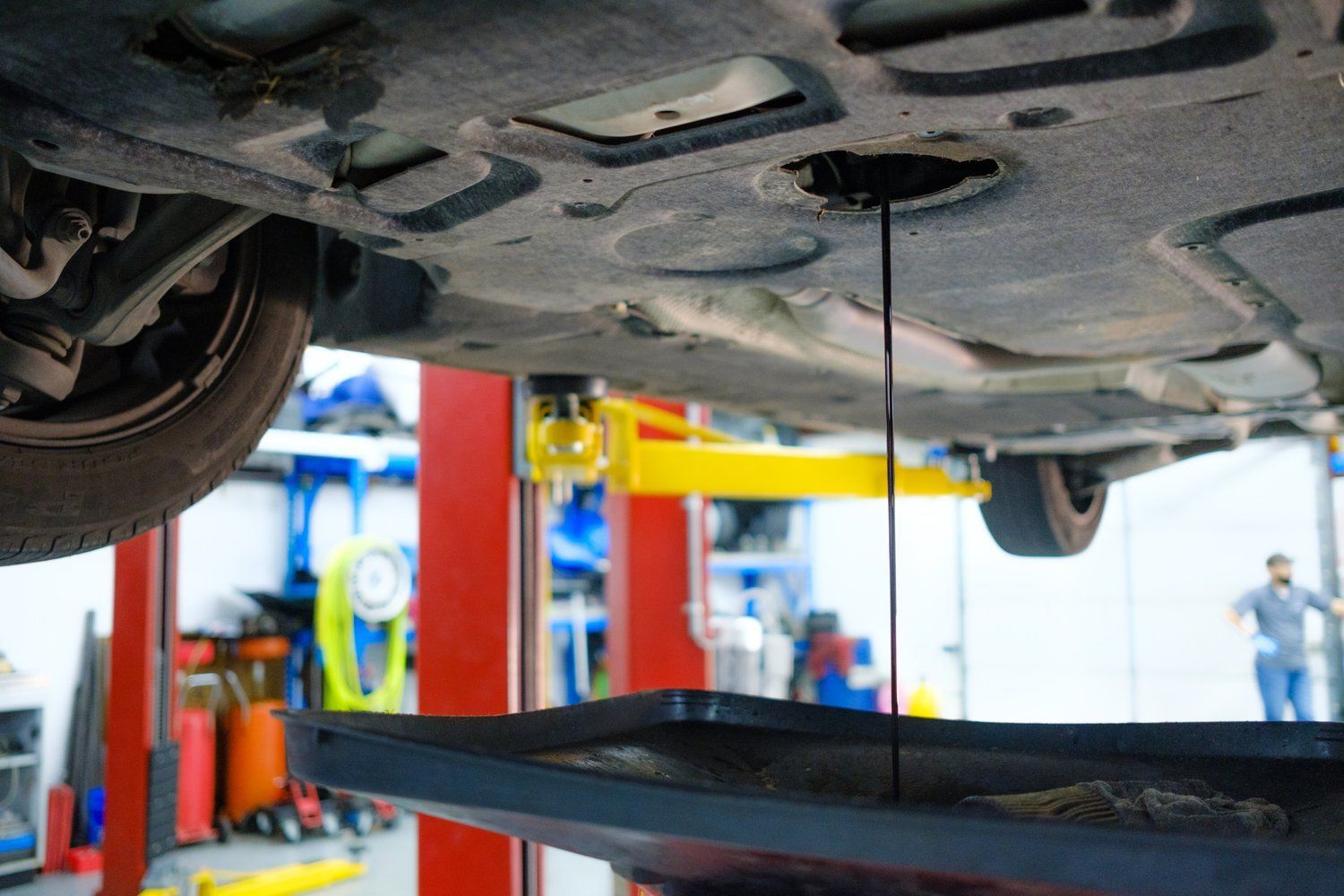
By C Deselle
•
February 12, 2025
Oil leaks are one of the most common issues BMW owners encounter. While these leaks might seem like minor inconveniences, ignoring them can lead to costly repairs and potentially serious damage to your engine. At TMJ Bimmers, we’ve seen and repaired countless BMW oil leaks, and three culprits consistently top the list: valve cover leaks, oil filter housing gasket leaks, and oil pan gasket leaks. Let’s break down these issues, their causes, and how they can be resolved. 1. Valve Cover Gasket Leak What It Is: The valve cover sits on top of your BMW’s engine and seals the valve train. Over time, the gasket that seals the valve cover becomes brittle and starts to leak. This is particularly common in models like the BMW 3 Series, 5 Series, and X Series vehicles, especially those with higher mileage. Signs of a Problem: A burning oil smell due to oil dripping onto the exhaust manifold. Visible oil leaks around the top of the engine. Check engine light (CEL) due to misfires caused by oil seeping into the spark plug wells. Engine running rough or noticeable performance issues. Causes: High engine temperatures causing gasket material to degrade. Normal wear and tear due to age and usage. Improper installation or over-tightening during previous repairs. Waiting too long between oil changes; Extended oil change intervals leading to sludge buildup, which accelerates wear. Potential Consequences : If left unchecked, a valve cover gasket leak can lead to more severe problems, such as damaged ignition coils or fouled spark plugs. This can result in misfires, reduced fuel efficiency, and costly repairs. How We Fix It : At TMJ Bimmers, we replace the valve cover gasket with a high-quality OEM or aftermarket part, ensuring proper torque specifications to prevent future leaks. We also inspect the valve cover itself for cracks, which can occur on older models. After the repair, we thoroughly clean the area to remove any residual oil. 2. Oil Filter Housing Gasket Leak What It Is : The oil filter housing gasket seals the connection between the oil filter housing and the engine block. Over time, this gasket can deteriorate, leading to leaks. This issue is particularly common in turbocharged BMW engines, such as the N54 and N55. Signs of a Problem: Oil pooling near the front of the engine. Unexplained decreased oil levels between oil changes. Visible oil stains on the engine or driveway. Unusual engine noises caused by low oil pressure. Causes : Exposure to heat and pressure, which breaks down gasket material over time. Age-related wear, especially in vehicles with over 60,000 miles. Poor-quality replacement gaskets from previous repairs. Waiting too long between oil changes; Delayed oil changes causing sludge buildup around the gasket. Potential Consequences: Ignoring an oil filter housing gasket leak can cause engine components to wear prematurely. It can also lead to low oil pressure, which in extreme cases, can result in engine failure. How We Fix It: We’ll replace the failing gasket and thoroughly clean the area to ensure no residual oil remains. During the repair, we’ll inspect nearby components like the oil cooler gasket, as it’s often affected in tandem. Additionally, we check for oil contamination in the cooling system, which can occur if the issue is left unresolved for too long. 3. Oil Pan Gasket Leak What It Is: The oil pan gasket seals the oil pan to the bottom of the engine. This gasket can fail, especially in older or high-mileage BMWs. Vehicles that experience frequent stop-and-go driving or those exposed to harsh road conditions are particularly susceptible. Signs of a Problem: Oil spots on your garage floor or driveway. Visible oil dripping from the underside of the car. Low oil level warning on the dashboard. Increased oil consumption requiring frequent top-offs. Causes: Damage from road debris or impacts causing stress on the oil pan. Long-term wear and exposure to heat, which weakens gasket material. Over-tightened bolts leading to gasket compression and failure. Improper installation during previous repairs. Potential Consequences : An untreated oil pan gasket leak can lead to low oil levels, causing inadequate lubrication of engine components. Over time, this can result in excessive wear, overheating, and potentially catastrophic engine damage. How We Fix It: Replacing an oil pan gasket involves removing the oil pan, cleaning the mating surfaces, and installing a new gasket. This process requires precision and care, as improper installation can lead to further leaks. While the oil pan is off, we inspect for sludge or debris to ensure the engine stays in optimal condition. We also replace the engine oil and filter as part of the service. Why Do BMWs Experience Oil Leaks? BMWs are known for their precision engineering and high-performance engines. However, these characteristics also make them more prone to oil leaks due to: Higher operating temperatures compared to many other vehicles. The use of synthetic oil, which can expose weaknesses in gaskets over time. Complex engine designs with multiple gaskets and seals. Regular maintenance and timely repairs are key to keeping your BMW in peak condition. Why Choose TMJ Bimmers for Your BMW Repairs? Oil leaks are more than just a nuisance—they can compromise your engine’s performance and longevity. At TMJ Bimmers, we specialize in BMW maintenance and repairs, offering: Expertise : Our team is trained to diagnose and repair common BMW issues efficiently. High-Quality Parts : We use OEM and premium aftermarket parts to ensure durability and reliability. Transparent Communication : We’ll walk you through the repair process and provide clear, upfront pricing. Comprehensive Inspections : Every repair includes a thorough inspection to identify and address potential issues before they escalate. If you suspect your BMW has an oil leak, don’t wait for the problem to worsen. Contact us today at 713.384.2273 or visit tmjbimmers.com to book your appointment at our Houston shop to have your vehicle inspected. Let’s keep your BMW running smoothly and leak-free for miles to come!
TMJ Bimmers Euro Auto Repair
Mon - Fri 8:00am - 6:00pm
Payment Options







Services
List of Services
-
Air Conditioning ServiceAir Conditioning Service
-
Alignment SpecialistAlignment Specialist
-
Battery ServicingBattery Servicing
-
Brake Inspection and ServiceBrake Inspection and Service
-
Check Engine Light ServicesCheck Engine Light Services
-
Complete Computer DiagnosticsComplete Computer Diagnostics
-
Coolant Systems RepairCoolant Systems Repair
-
Differential & Transfer Case ServicingDifferential & Transfer Case Servicing
-
Electrical System RepairElectrical System Repair
-
Engine Service and RepairEngine Service and Repair
-
Muffler & Exhaust System Repair and UpgradeMuffler & Exhaust System Repair and Upgrade
-
Fuel System ServiceFuel System Service
-
Oil ChangeOil Change
-
Performance & Transmission TuningPerformance & Transmission Tuning
-
Pre-Purchase InspectionsPre-Purchase Inspections
-
Road-Force Wheel BalancingRoad-Force Wheel Balancing
-
Steering and SuspensionsSteering and Suspensions
-
Timing Chain Issues & RepairsTiming Chain Issues & Repairs
-
Transmission Repair and ServiceTransmission Repair and Service
List of Services
-
Air Conditioning ServiceAir Conditioning Service
-
Alignment SpecialistAlignment Specialist
-
Battery ServicingBattery Servicing
-
Brake Inspection and ServiceBrake Inspection and Service
-
Check Engine Light ServicesCheck Engine Light Services
-
Complete Computer DiagnosticsComplete Computer Diagnostics
-
Coolant Systems RepairCoolant Systems Repair
-
Differential & Transfer Case ServicingDifferential & Transfer Case Servicing
-
Electrical System RepairElectrical System Repair
-
Engine Service and RepairEngine Service and Repair
-
Muffler & Exhaust System Repair and UpgradeMuffler & Exhaust System Repair and Upgrade
-
Fuel System ServiceFuel System Service
-
Oil ChangeOil Change
-
Performance & Transmission TuningPerformance & Transmission Tuning
-
Pre-Purchase InspectionsPre-Purchase Inspections
-
Road-Force Wheel BalancingRoad-Force Wheel Balancing
-
Steering and SuspensionsSteering and Suspensions
-
Timing Chain Issues & RepairsTiming Chain Issues & Repairs
-
Transmission Repair and ServiceTransmission Repair and Service
Services
List of Services
-
Air Conditioning ServiceAir Conditioning Service
-
Alignment SpecialistAlignment Specialist
-
Battery ServicingBattery Servicing
-
Brake Inspection and ServiceBrake Inspection and Service
-
Check Engine Light ServicesCheck Engine Light Services
-
Complete Computer DiagnosticsComplete Computer Diagnostics
-
Coolant Systems RepairCoolant Systems Repair
-
Differential & Transfer Case ServicingDifferential & Transfer Case Servicing
-
Electrical System RepairElectrical System Repair
-
Engine Service and RepairEngine Service and Repair
List of Services
-
Air Conditioning ServiceAir Conditioning Service
-
Alignment SpecialistAlignment Specialist
-
Battery ServicingBattery Servicing
-
Brake Inspection and ServiceBrake Inspection and Service
-
Check Engine Light ServicesCheck Engine Light Services
-
Complete Computer DiagnosticsComplete Computer Diagnostics
-
Coolant Systems RepairCoolant Systems Repair
-
Differential & Transfer Case ServicingDifferential & Transfer Case Servicing
-
Electrical System RepairElectrical System Repair
-
Engine Service and RepairEngine Service and Repair
-
Muffler & Exhaust System Repair and UpgradeMuffler & Exhaust System Repair and Upgrade
-
Fuel System ServiceFuel System Service
-
Oil ChangeOil Change
-
Performance & Transmission TuningPerformance & Transmission Tuning
-
Pre-Purchase InspectionsPre-Purchase Inspections
-
Road-Force Wheel BalancingRoad-Force Wheel Balancing
-
Steering and SuspensionsSteering and Suspensions
-
Timing Chain Issues & RepairsTiming Chain Issues & Repairs
-
Transmission Repair and ServiceTransmission Repair and Service
© 2024 TMJ Bimmers Euro Auto Repair. All Rights Reserved | Website managed by Shopgenie
